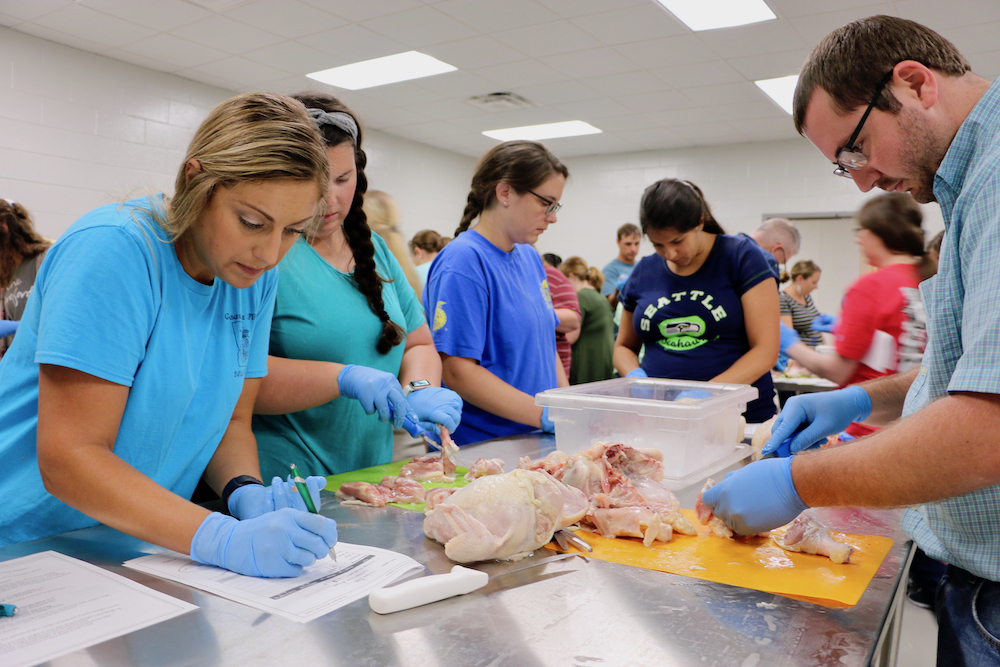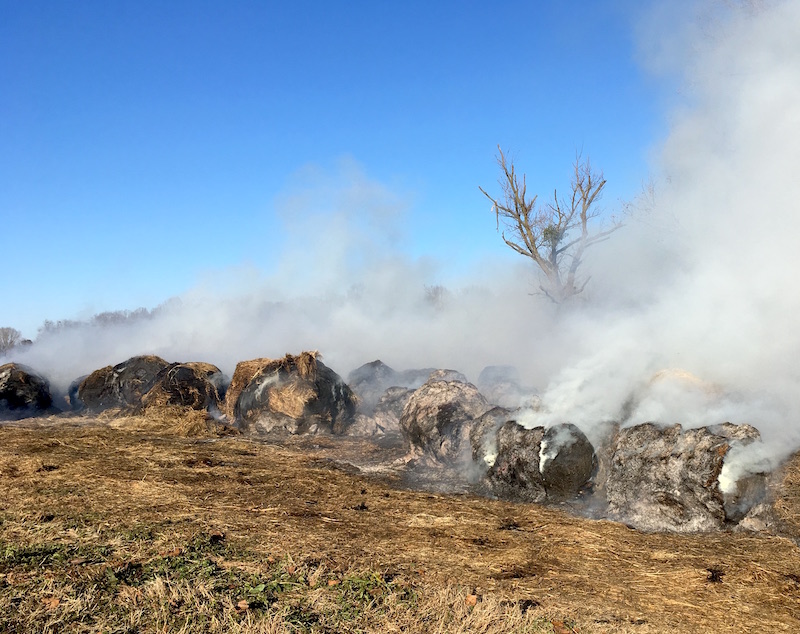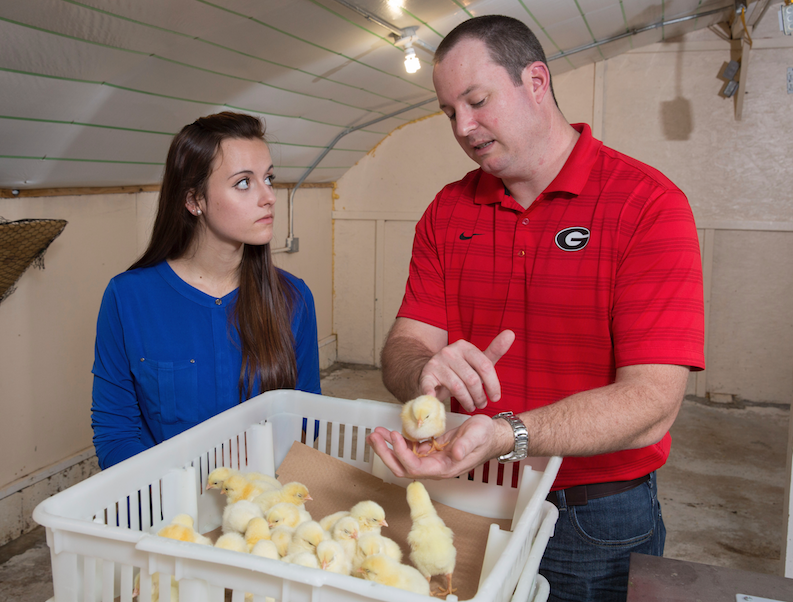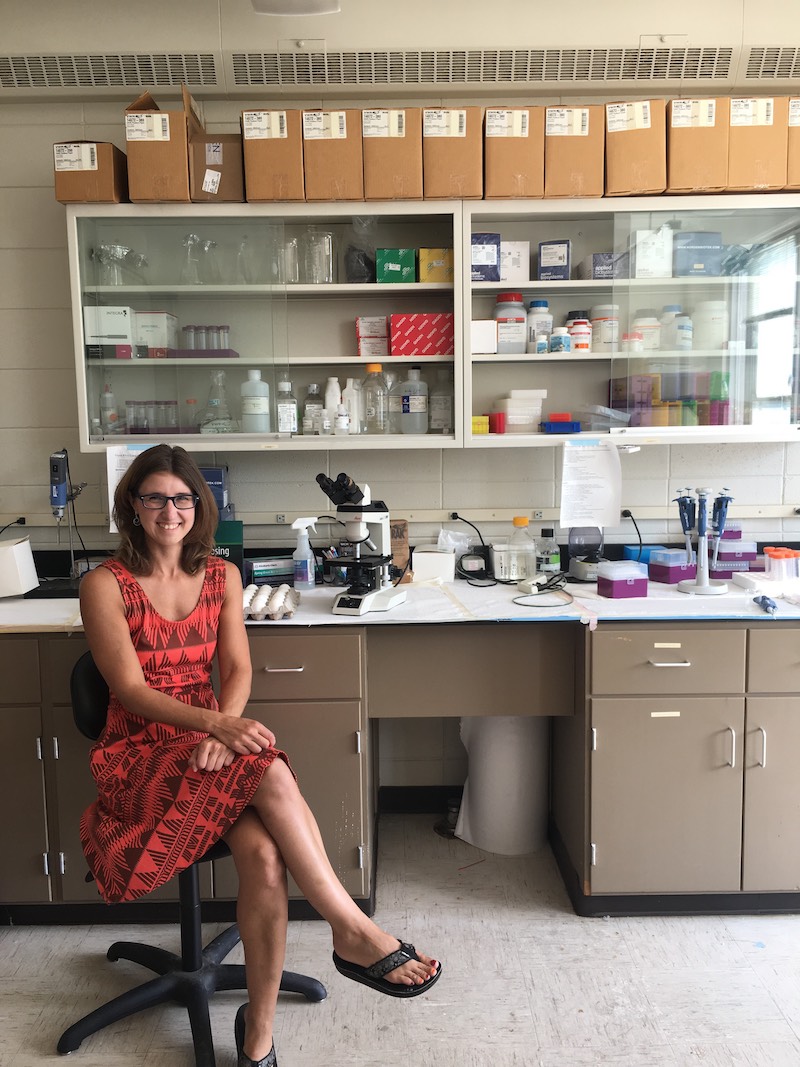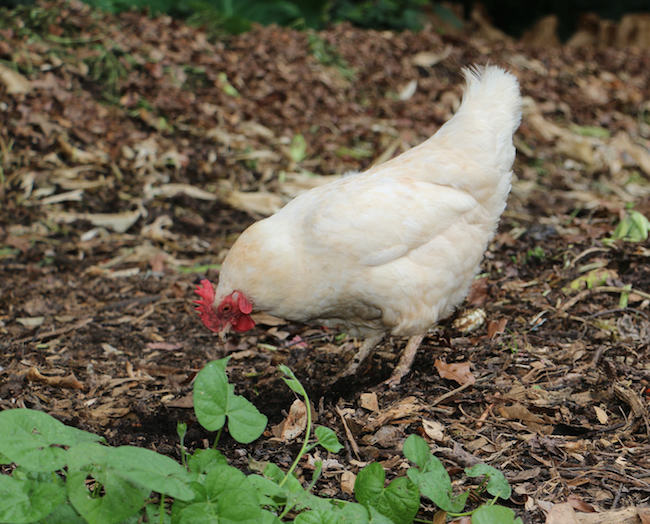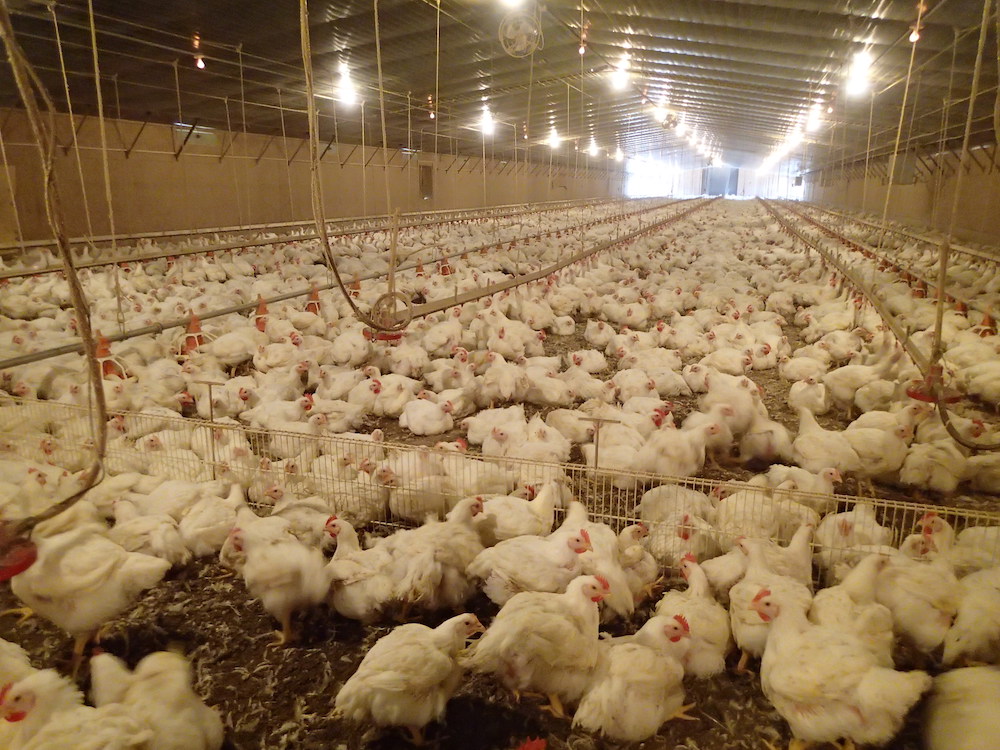 CAES News
CAES News
Poultry Workshops
The poultry industry has a huge impact on the economy in Georgia, and University of Georgia Cooperative Extension specialists are committed to helping the commercial poultry industry stay up to date on the most current problems and trends.

